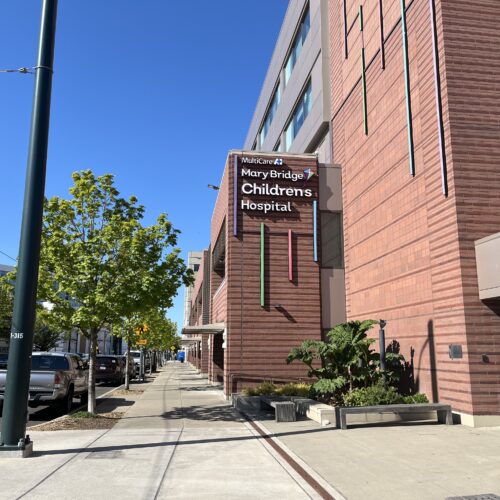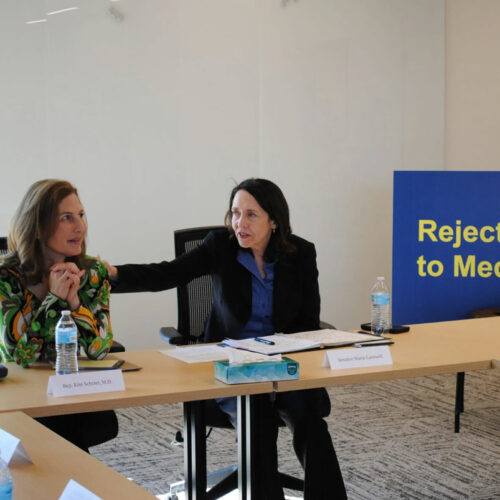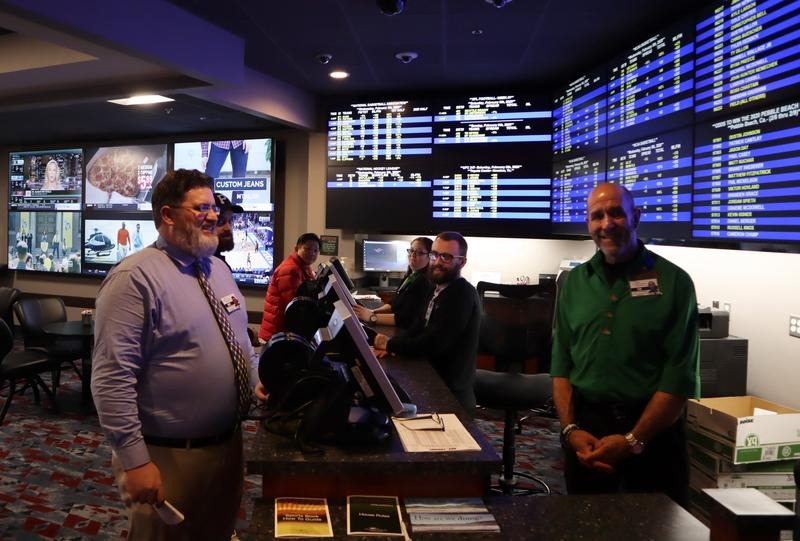
Sports Betting Is Now Legal In Washington, But Only At Tribal Casinos
READ ON
Amid a widespread shutdown of athletic events, Washington state has become the 21st state to legalize betting on sports. Gov. Jay Inslee on Wednesday signed legislation to authorize sports wagers in tribal casinos only.
It will be months before sports fans can bet money on games though, because first the tribes have to negotiate regulatory agreements with the state. And of course, sports leagues have to start up again.
Absent COVID-19, the bill signing ceremony in the Washington governor’s office might have been a major celebration for the sponsors and Indian gaming tribes. But Inslee sat at his table alone as he legalized sports betting with a stroke of his pen.
“This will give people an opportunity to participate in a new gaming activity that is safe and well-regulated by the tribes,” the Democratic governor said before moving on to a stack of other bills.
The signing ceremony was shoehorned in between many meetings and phone calls about the state’s coronavirus pandemic response.
Nationally, the sports gaming industry is in upheaval and bleeding money because of the near-total suspension of collegiate and professional sports. The contests that bettors would normally wager on are cancelled due to restrictions on public gatherings to help curb the spread of coronavirus.
“We’re excited that it got over the finish line and the governor signed it today, but we’ve got bigger problems right now than sports betting,” said Rebecca Kaldor, executive director of the Washington Indian Gaming Association in an interview Wednesday.
Kaldor noted that all of the casinos in the region are temporarily closed in order to limit person-to-person transmission of the contagion. She said casinos provide the main source of revenue to tribal governments for a wide range of social service, education and economic development programs.
“As we recover from this crisis, the addition of this amenity will help tribal governments fund the essential services their members will need to get back up on their feet,” Kaldor said.
Washington state lawmakers chose a more limited approach than other states that have legalized sports betting. There will be no broadly available internet or mobile betting options, unlike in neighboring Oregon where the state lottery earns profits through a smartphone sports betting app.
The decision to restrict sports wagers solely to the premises of tribal casinos was approved by wide margins in the Washington state House of Representatives and Senate. But the final votes came down to the wire on the final days of the 2020 session, in part because of heavy lobbying by entities with a stake in the outcome.
The state’s 29 federally-recognized tribes argued that Washingtonians prefer to limit any expansion of gambling and so therefore the tribes should be the exclusive, trusted partner to provide sports betting in their casinos. Tribal leaders made regular appearances to testify in front of legislative committees about the good works they accomplish with gaming profits. Left unmentioned was their long track record of donating to the campaigns of the Democratic majority in Olympia.
Meanwhile, non-tribal card rooms — also known as “mini-casinos” — and horse racing interests pressed lawmakers for a broader legalization that would allow sports betting off reservations too, including at privately-run neighborhood card rooms and at horse tracks.
Maverick Gaming, which recently acquired 19 non-tribal card rooms in Washington, mounted an expensive lobbying push including a statewide advertising campaign and testimony from newly-unionized employees. In mid-March, Maverick Gaming CEO Erik Persson wrote directly to Inslee to ask the governor to veto the finalized legislation, which Persson said was unnecessarily divisive by creating “a tax-free monopoly for tribal casinos.”
“There is a win for all licensed gaming establishments that helps both Tribal and non-Tribal communities and the Legislature decided not to pursue it, giving up millions of dollars in tax revenue that could support local and state priorities,” Persson wrote in his letter to Inslee.
Washington’s major universities sent lobbyists onto the field of action too, to ask that bettors be prohibited from wagering on games involving local teams such as the UW Huskies and WSU Cougars. Lawmakers agreed to disallow betting on in-state collegiate teams and minor league games.
Washington state’s sports wagering authorization allows betting on a wide range of sporting events including other college sports, professional sports, overseas leagues and Olympic and World Cup competitions. It also allows betting on increasingly popular video game tournaments, commonly called esports.
The sports betting legislation that Inslee signed Wednesday included an eyebrow-raising clause that declared the issue constituted an “emergency.” Critics of the bill argued the inclusion of the emergency clause was a devious ploy to forestall a referendum petition drive, which would have paused implementation of the law until voters statewide could have their say at the November general election. Inslee could have vetoed the emergency clause — as he has done before on other bills — but he chose not to this time.
Kaldor said negotiations could begin immediately between interested tribes and the Washington State Gambling Commission to amend the state-tribal gaming agreements, known officially as “compacts.” She guessed that athletic competition across the nation would be well underway again by the time all the regulatory details and casino floor improvements were worked out. It could be autumn before the first bettors get to lay their wagers.
“I think how tribes will operate their sportsbooks will differ from property to property,” Kaldor said. “I think we’ll see a range of everything from a full- blown sports lounge to individual kiosks.”
In 2018, the U.S. Supreme Court cleared the way for states beyond Nevada to have sports betting. It is now a state-by-state choice for policymakers to make. The Oregon Lottery dove in last year with its online sports betting app and two coastal Oregon tribes added sportsbooks to their casino offerings.
Oregon avoided having much of a debate about the pros and cons of sports betting in the wake of the 2018 Supreme Court decision because of a legacy of the state lottery. From 1989 to 2007, the Oregon Lottery offered a game called “Sports Action” that let adults bet on NFL football games. This past year, the lottery and tribal governments in Oregon said they didn’t need to go to the legislature for permission to reintroduce and expand sports gambling because the authorization already existed from a vote way back in 1989.
Related Stories:
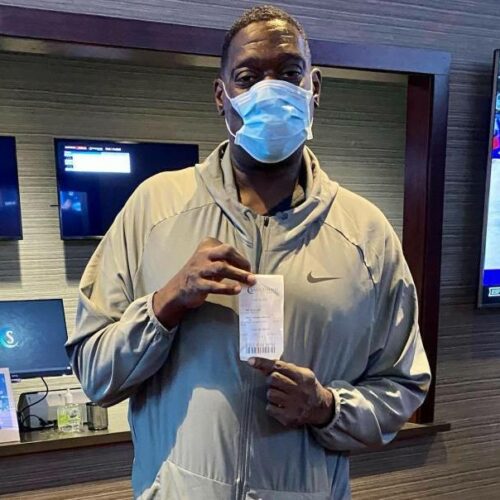
SuperSonics Star Places First Legal Sports Bet In Washington State
Just in time for the kickoff of the NFL regular season, the first legal sports betting operation in Washington state has opened for business. On Thursday, a line of bettors queued behind a sports celebrity to place their first bets at a tribal casino in the eastern suburbs of Seattle.
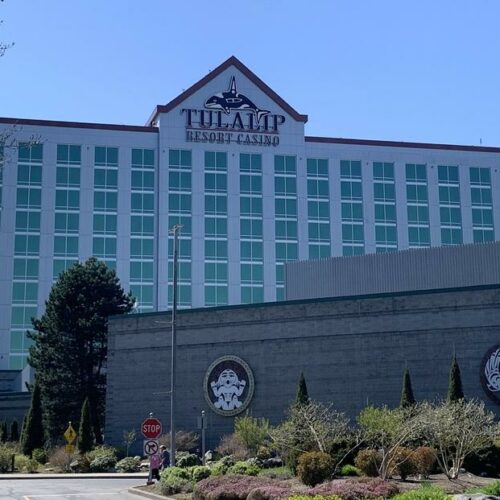
Legal Sports Betting Comes To Washington In Deal With Tulalip Tribe
Nearly a year after the Washington Legislature voted to legalize sports betting, terms have been agreed for the first sportsbook to open. It will be inside one of the two Tulalip tribal casinos alongside Interstate 5 north of Everett.
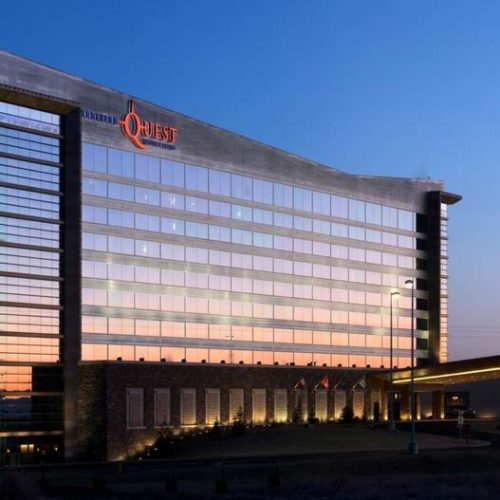
Four Tribes In Talks To Introduce Legal Sports Betting To Washington In Their Casinos
Four Washington state tribes have opened negotiations with the state government to introduce sports betting. Earlier this year, the legislature authorized wagering on sports, but only at tribal casinos — unlike the broader legalization in Oregon.


